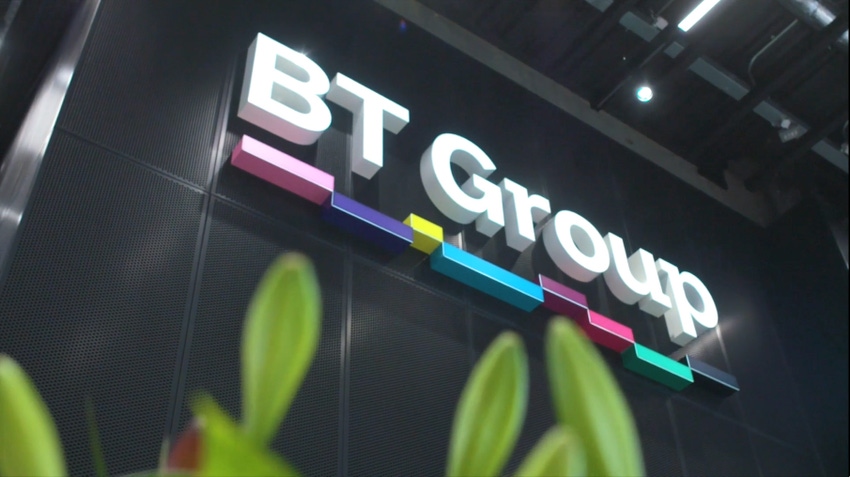Eurobites: BT penalizes low-spenders with fixed-figure price increases
Also in today's EMEA regional roundup: BICS' roaming translator; the rise of the browser minnows; why the merger of Vodafone and Three is good for rugby.

BT has announced its new approach to consumer price rises – and it looks like bad news for low-spenders. Previously, BT and most other major UK operators calculated their annual price increases on a bizarre formula that was based on the rate of inflation plus 3.9%. This approach drew criticism from many quarters, so BT has said that, beginning March 31, 2025, for new and re-contracting mobile customers, this annual increase will be an extra £1.50 a month, £2 a month for TV customers and £3 a month for broadband customers. So if you're on a BT broadband tariff of, say, £30 a month, that's a 10% increase, whereas if you're forking out £60 a month for ultra-super-duper-blazin'-fast broadband, it's only a 5% increase. An anti-social tariff, perhaps?
Belgium's BICS has introduced something it calls a "roaming translator" intended to help travelers stay connected when they stray onto networks that no longer support 2G or 3G technologies. Among other benefits, the translator will enable roamers to receive the "welcome SMS" that usually pings on people's phones when they arrive in a new country, informing them of the rates for using data, calls or SMS while abroad and providing local emergency numbers. SMS messages are delivered via different "languages" on 2G networks compared to 4G – BICS' new software "translates" between the different generations of protocols that enable the sending and receiving of messages (such as SS7 for older networks, and Diameter for newer ones).
Smaller, "independent" browsers are on the rise in Europe in the wake of the EU's passing of the Digital Markets Act. According to a Reuters report, the likes of the Cyprus-based Aloha, Norway's Vivaldi and Germany's Ecosia are all gaining traction since the introduction of the new rules, which force tech giants to offer mobile users a choice of browsers when they are setting up new phones for the first time.
Who's the daddy in Swiss mobile? Depends who you ask. Incumbent Swisscom says its network is the best, pointing to results of the latest test carried out by trade magazine CHIP. But wait, what's this? Rival Salt claims it's the number one postpaid mobile service provider, citing tests carried out by the Swiss Institute for Quality Tests (SIQT). So which is better, Salt or Swisscom? There's only one way to find out…
Finland's Elisa has secured a €100 million (US$107 million) sustainability-linked loan from the Nordic Investment Bank. The agreed sustainability targets associated with the loan are: a reduction of absolute Scope 1 and 2 greenhouse gas (GHG) emissions by 42% from the baseline year; a reduction of absolute Scope 3 GHG emissions by 42% in the purchased services and goods categories from the baseline year; and a decrease in the population without high-speed Internet connections (minimum 100 Mbit/s, both mobile and fixed) in Finland and Estonia, with a target of 1% by 2030.
US-based Extreme Networks and Bell Computer-Netzwerke have been chosen to deploy a Wi-Fi 6E-ready network at Borussia Dortmund's soccer stadium in Germany. The new network will, among other things, allow fans at the 81,000-seater stadium to indulge in real-time sports betting and enable the stadium's owners to scan mobile tickets more quickly and gain deeper insights into user behavior.
South Africa-based MTN says that its Ayoba "super-app" now has 35 million monthly active users across the African continent. Music streaming was a particular growth area, with more than 600 million streams being notched up in 2023. Looking ahead, Ayoba plans to launch an updated range of services, including a communications API, new payment partners and improvements to its partner portal.
Vodafone's remorseless campaign to convince the world that its proposed merger with rival mobile operator Three is a Very Good Thing continues, and this time it's rugby's turn to be the hook on which Vodafone hangs its propaganda hat. According to Vodafone, 5G-powered tech across the UK's oval-ball "ecosystem" could add £139 million ($174 million) to the rugby economy each season from 2029, whilst improving the fan experience inside and outside the stadiums. But – and here's the catch – full 5G rollout will take considerably longer if the merger with Three doesn't get the go-ahead, says Vodafone.
Read more about:
EuropeAbout the Author(s)
You May Also Like












